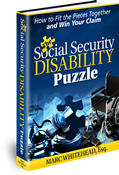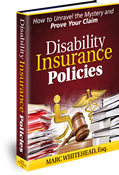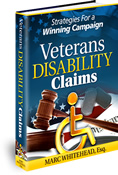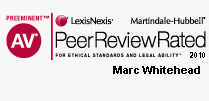Texas Attorney Explains the Evolution of House Bill 274
Texas attorney Steve Waldman and his associate Kevin Kyser recently wrote a paper called “The Attempted Assassination of the American Rule,” which covered the evolution of Texas House Bill 274. He discussed the provisions related to who would pay attorney fees and litigation costs in a lawsuit, and revealed that the introduced version of this bill would have given an unfair advantage to the defendant in many civil cases, making it that much harder for plaintiffs to fight injustices.
Texas Attorney: Original House Bill 274 and the Defendant’s Advantage
The original bill did away with the American Rule for most civil cases, such as insurance bad faith, product liability, negligence cases, and premises liability. Instead, it would allow the defendant in certain claims to recover the fees of their Texas attorney.
Currently, you are only able to recover “reasonable attorney’s fees” from an individual or corporation for
(1) rendered services;
(2) performed labor;
(3) furnished material;
(4) freight or express overcharges;
(5) lost or damaged freight or express;
(6) killed or injured stock;
(7) a sworn account; or
(8) an oral or written contract.
To recover fees for these services, the claimant must present his claim to the opposing party, and the opposing party has to fail to pay the “just amount” within 30 days. Also, damages must be collected before attorney’s fees are available. So just because you defended a claim does not mean you have the right to be awarded the cost of the fees of their Texas attorney. You would only be awarded reasonable attorney’s fees if a counter-claim was asserted and damages for that claim were awarded to the defendant.
House Bill 274 would change this, allowing the prevailing party to recover attorney’s fees, which means that a prevailing defendant could capture attorney’s fees from a losing plaintiff just for successfully defending against the suit. In short, if you sued someone, you’d have to take the risk that you would have pay for your opponent’s defense!
The Bill also added a new Subchapter, which would allow the defendant to elect to have the litigation costs, such as court costs, attorneys’ fees, travel expenses, and fees for up to two testifying experts, paid to the party that prevails in the lawsuit. If this had become law, a plaintiff’s only protection against these fees would be to non-suit the case, which means to have the case dismissed with prejudice, within fifteen days of being notified of the fees election by a defendant.
This would have given the defendant and his Texas attorney a lot of power to scare the plaintiff into abandoning their claim and also a huge advantage, since the defendant can choose the litigation costs election for cases where liability would be more questionable for the plaintiff, such as premises liability cases and contract interpretation cases. And of course, where the case was clearly in favor of the plaintiff, such as car accidents where one party was rear-ended or clear breach of contract cases, the defendant would opt out of the litigation costs election.
And since this election can be made at almost any time during the suit, the defendant and his Texas attorney could wait until after discovery when they had a better idea of the probable outcome for the case to decide if the fees election would be beneficial or not. This means that the rule would most often only be used to the advantage of the defendant but rarely for the plaintiff, the one who was the actually wronged party.
Thankfully, this version of the bill that would have completely undermined victims’ rights did not pass, and the American Rule remains intact. If you have suffered from a personal injury, I encourage you to contact an experienced Texas attorney to better understand your situation.
If you or a loved one have been injured in an accident, contact Marc Whitehead, a board certified personal injury attorney in Houston, Texas or download our free ebook.









